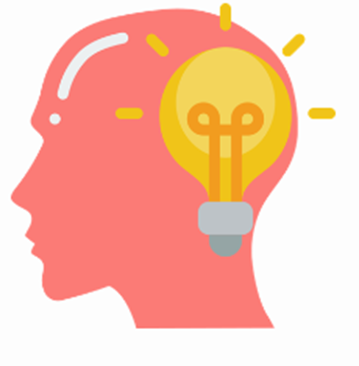Reading
Subject Intent:
At Woodvale, our vision is 'Everyone Thriving' and our reading curriculum aims to foster our 3 curriculum drivers: oracy, cultural richness, and social intelligence. At the heart of our approach is a belief that reading is truly a tool for life, and it is through books and our language-rich classrooms that we teach the essential reading skills that our children will need to thrive in their own lives. We want our children to read a wide range of texts, gain knowledge of the wider world and apply their skills to the wider curriculum.
 |
Developing oracy is a fundamental driver in our curriculum. Within phonics lessons children are taught to articulate individual phonemes correctly and clearly. They are taught to blend these phonemes to read words correctly and as their knowledge progresses to read words and sentences fluently. Through reading lessons, students engage in purposeful discussions, making predictions, inferences and deductions, articulating their opinions clearly and justifying their answers using information both from the text and their background knowledge of the wider world. Talk is encouraged, practised, refined and improved. Our children are expected to speak and read aloud with accuracy, clear projection and appropriate intonation to engage and entertain their audience. Our lessons encourage dialogue, with children articulating their ideas and listening to the ideas of others. The books chosen for reading lessons enable rich discussions and opportunities for children to widen their vocabulary. By using a growing vocabulary and explaining their thinking, children develop confidence in expressing themselves, honing their communication skills, and fostering a strong foundation for lifelong learning. |
 |
Diversity is another of our curriculum drivers. We believe that through reading a diverse range of literature children will develop their understanding of a range of lived experiences nationally, internationally and across different time periods. Through the reading curriculum children will have the opportunity to study a range of authors and texts: modern, historical, from a diverse range of backgrounds and experiences. Giving children the opportunity to read and discuss a range of perspectives will foster inclusivity and respect for cultural diversity. |
 |
Developing social intelligence is a key aspect of our reading curriculum. Children will study non-fiction texts allowing them to develop their understanding of the world and, where appropriate, the context of fiction texts they read. The range of narrative and poetry texts gives children opportunity to develop empathy for characters in the books they read. Children are supported to discuss big concepts within their reading, discussion and written work such as the ideas of friendship, belonging and acceptance. They are engaged in co-operative group learning tasks including group discussions. Through these activities children develop essential social skills such as respecting diverse viewpoints and sharing their ideas. |
Subject Implementation:-
First and foremost, our aim is for all children at Woodvale to develop a life-long love of reading. We passionately believe in the importance of exposing our children to the wonders of the written word. Reading is truly a tool for life, and it is through books and our language-rich classrooms that we teach the essential reading skills that our children will need to thrive in their own lives.
Our children are entitled to a reading curriculum that enables them to:
-
Develop a life-long love of reading
-
Confidently read a wide range of texts with appropriate pronunciation, fluency and expression
-
Appreciate the purpose and value of books and story-telling
-
Gain knowledge of the world
-
Apply their reading skills to the wider curriculum
-
Support and develop their writing skills
-
Be prepared for the opportunities and demands of Secondary Education.
Reading at Home
We ask for three reads at home per week as a minimum although we encourage daily reading and do this through Reading Rewards; with children earning bronze, silver, gold and platinum awards for reading 3 times a week for 10, 20, 30 or 40 weeks.
Reading Books and Reading Records
All children are provided with an individual reading book and reading record from Reception to Year 6. Children should bring their reading book and planner to school every day. Teachers will track the number of reads at home so that children can earn reading miles. This promotes the importance of pupils bringing their book and planner to school each day. Teachers provide older pupils with opportunity to complete AR quizzes and to change books regularly. Teachers should follow up with families of any child regularly not bringing their book to school.
|
Types of books - Book type |
|
|
Nursery |
Children have a picture book to take home each week. Parents have a reading record to note down the book read and any comments they want to make. Parents are informed via Tapestry of the focus text for the following week, along with key characters or vocabulary and the song matched to the focus. |
|
Reception, Year 1 & Year 2 |
An individual reading book, matched to the reading phase from the Little Wandle Phonics scheme, will be given weekly to each child. Children should read this book using their phonic skills to decode the book and then re-read the book to develop fluency, prosody and comprehension skills. |
|
Year 3 upwards (on AR) |
Any children who are assessed as reading on a phonic phase 1-5 will continue to have a phonic book matched to their reading ability. After this they will be assessed for an Accelerated Reader book. Books should be selected from a ZPD (Zone Proximinal Development) identified following latest Star Test. Children will take a quiz following reading their AR book. Their book level should be changed if the pass rate is above 80%. Pupils may move a book level if they achieve 3 x 100% on a quiz. |
|
KS2 Children not on AR |
Where children are assessed as reading within phonic phases 2-5 they will be given Little Wandle 7+ reading books as their home readers, which are changed weekly. These are matched to their reading phase. |
Recording 1:1 reading
Adults should encourage and model good reading behaviour, including holding the book correctly and tracking the text with their finger where needed. They should model correct decoding strategies where necessary, using phonic strategies. Adults may also model reading with fluency and expression, asking children to re-read a section to develop their prosody skills.
Adults should record evidence using the individual reading records held by the teacher, recording the date, the name of the book and assessing against the relevant objectives for the child’s reading ability. A tick is given for an objective the child is achieving.
Adults should identify a next step or an element of reading they gave support with during the session in the commentary box. They can also record achievements. This builds a picture of the child’s reading progress and gives a clear focus for the next reading session.
The adult should also add the date and a brief comment in the home-school reading record.
Inclusion/ Intervention
If a child is not working at age related expectations, they will be identified through assessments and steps will be taken to help them improve their attainment in reading.
If a child has an identified SEND which may impact on their reading skills, the SENDCo will liaise with the class teacher and reading lead to ensure that the correct support is in place in able for these children to develop their reading skills.
Intervention support will be in place to support the above identified children. These interventions may include:
-
Additional 1:1 reading sessions
-
Additional phonic intervention
-
Additional reading comprehension teaching
-
Precision teaching of words and graphemes
Activities may be scaffolded to further progression and challenge where appropriate.
Equality Objectives
All children are provided with equal access to the English curriculum. We aim to provide inclusive learning opportunities regardless of gender, ethnicity or home background. We provide texts with a representative and broad range of people, with a range of cultures, ethnicities and beliefs. Our key texts are written by a range of authors from classical to modern day.
Reading for Pleasure
Children in Early Years and KS1 take home a picture book in addition to their phonic reading book. This book is marked ‘read this book to me’ and is for an adult at home to read and enjoy with their child. Reading for pleasure is promoted across the school. Junior Librarians take ownership of the presentation of the KS1 and KS2 library areas and use opportunities to promote reading, for example selecting texts for Black History Month. They have buddy readers in Year 1 that they read weekly with.
Reading for pleasure is promoted in the classroom with class reading books. These may be picture books or class novels that are chosen to develop or broaden children’s reading experiences and their exposure to a range of texts, developing their enjoyments and enthusiasm for reading through a shared experience with their class.
Pupil Voice:-
'It's good when our teacher reads us a book - then we can read it ourselves.' - Reception
'I just love reading. I've made a big improvement in my phonics. It's so much fun to read stories so you can learn new things'. - Year 1.
'Reading is good because you learn things and gain knowledge from books. It gets exciting when you turn the pages of a new book' Year 2.
'I love learning new words. It's not just new words but new things about the world. We get to read all the book, all by ourselves. - Year 3.
'We learn about different things in our reading, such as the country and the food where the story is set. It helps our understanding. Talk for Reading helps us to understand how to be a writer and lets us show how we feel' - Year 4.
'Reading gives you messages and life stories, like being confident and supporting your friends. They will benefit you as you get older' - Year 5.
'Everyone is enthusiastic in reading lessons, having lots of conversations about the book. It gives me more ideas' - Year 6.
